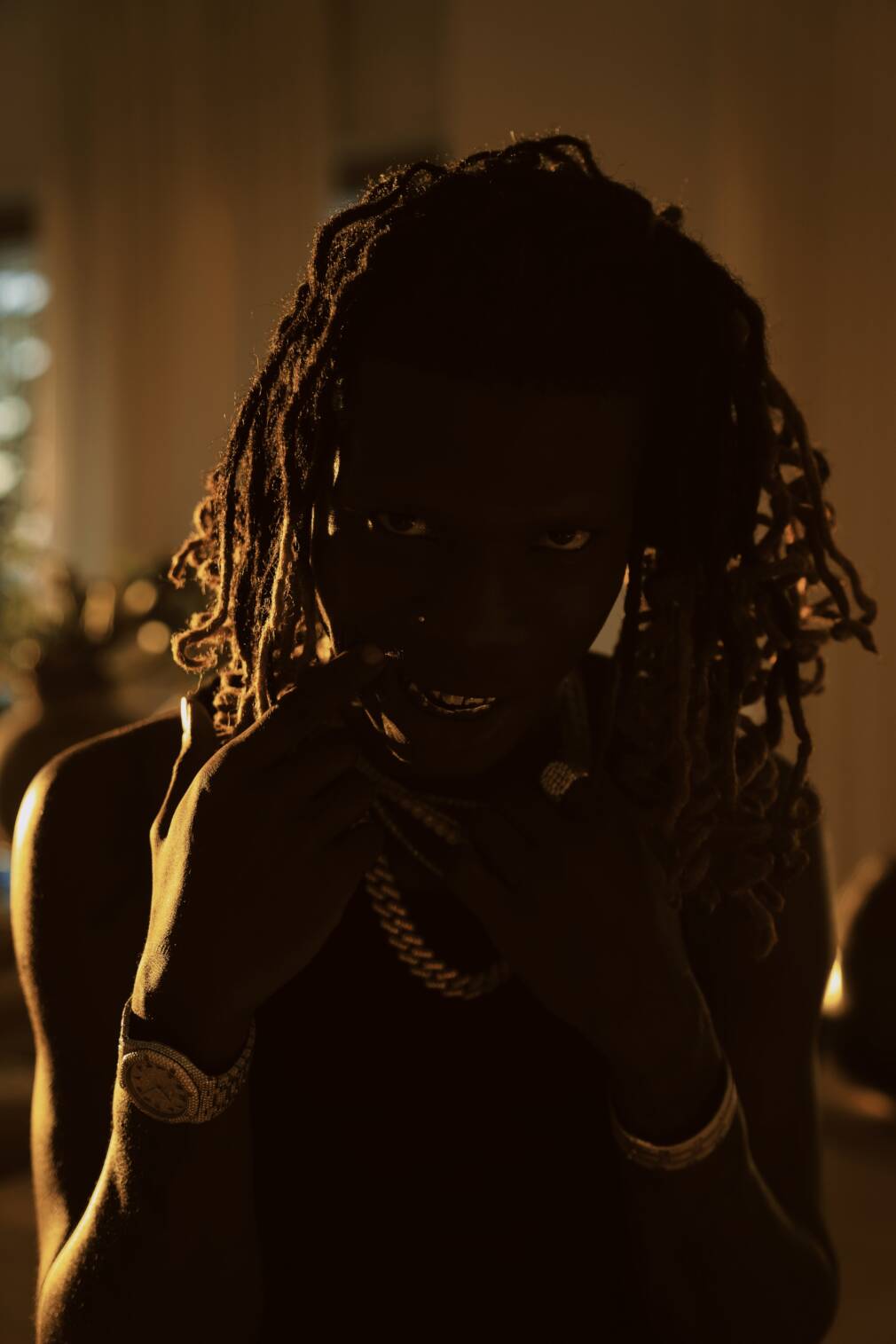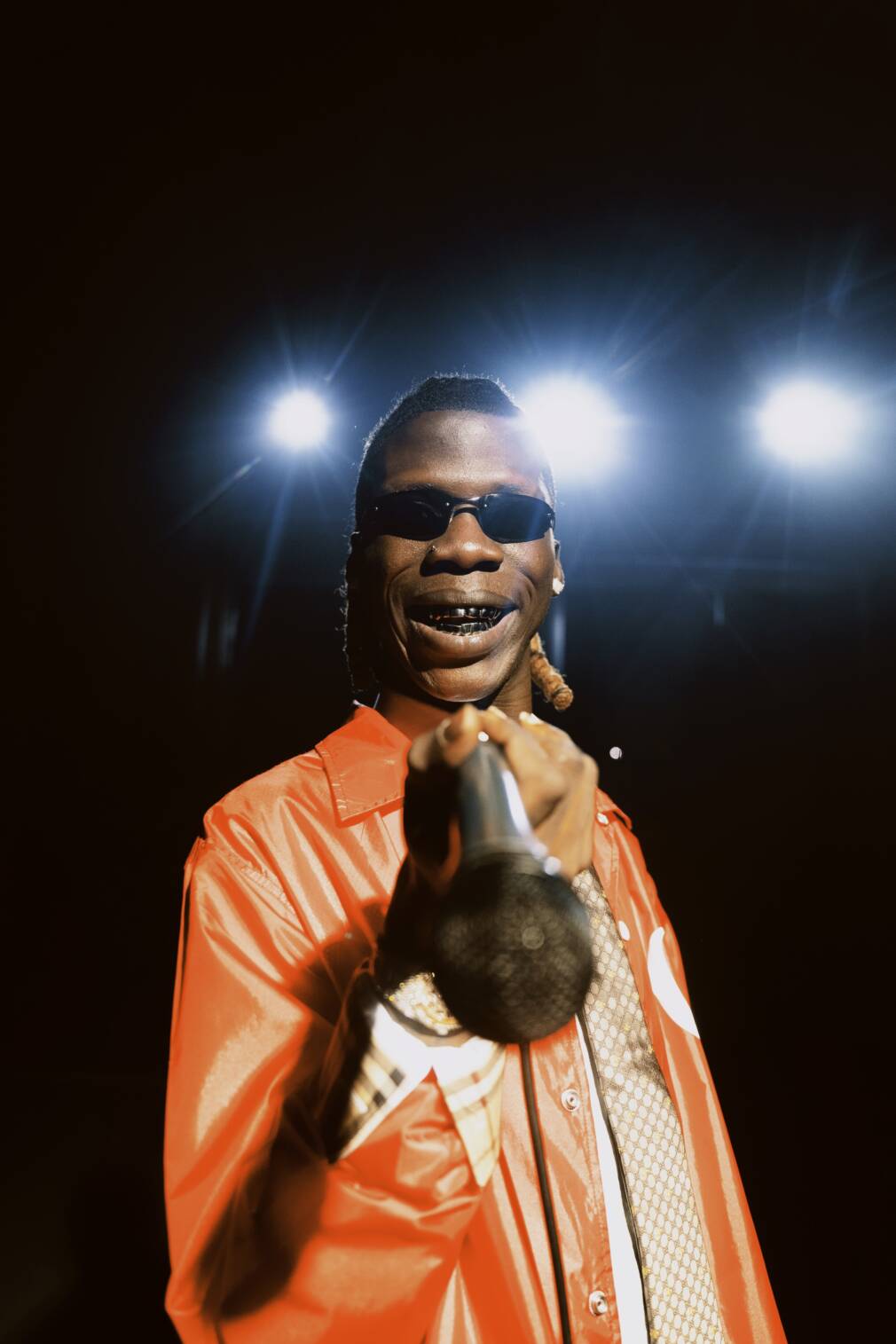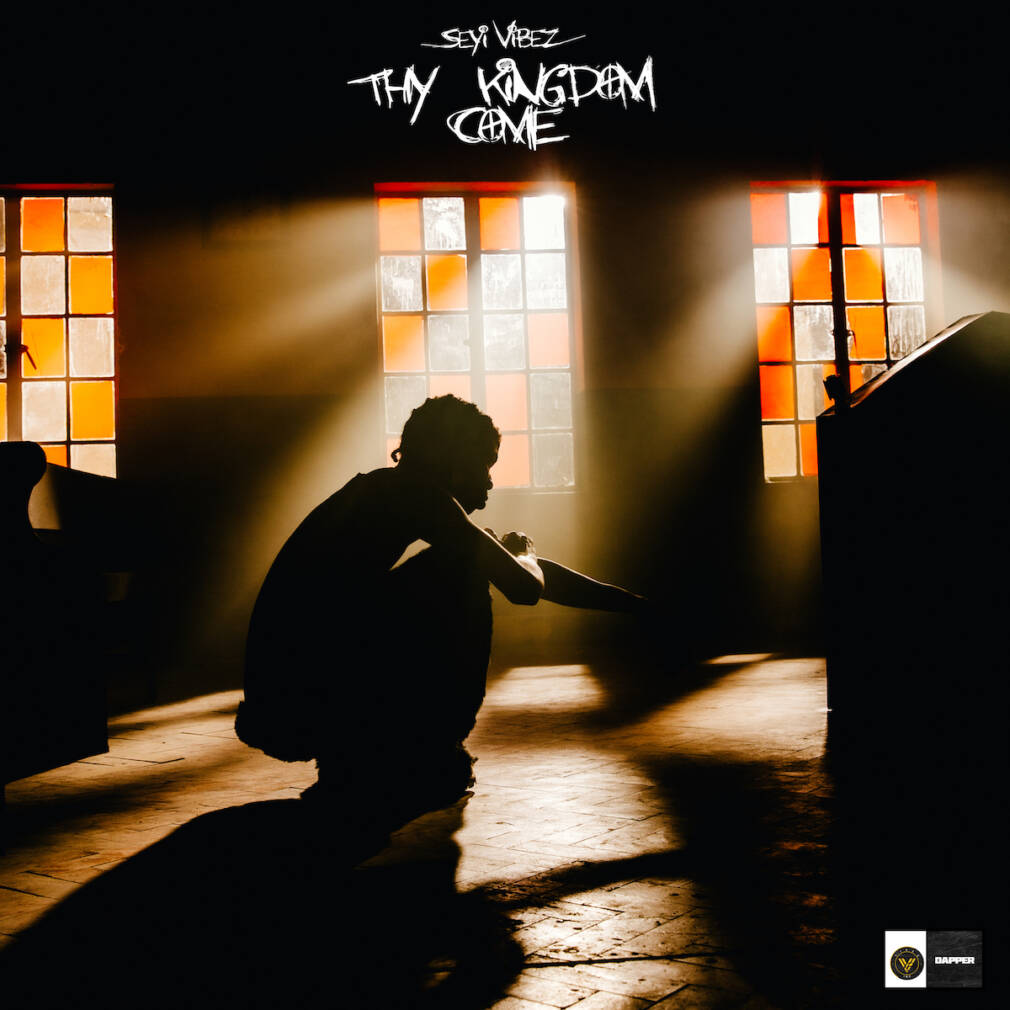After 60 years of frenetic rise and falls, fuji’s golden history continues to wax strong within its perennial Nigerian communities. From its Moziartan evolution in its catechist Alhaji Sikiru Ayinde Barrister to the groovy sauce of Alhaji Ayinla Kollington down to contemporary hip-hop blends from Pasuma and Obesere, fuji music has soared across the South Western landscapes of Nigeria, finding survival in the voices of newer generations of musicians such as the radical genre-bender, Seyi Vibez.
This fantastical genre, with its mesmerizing Quranic chants, harmonica jives and were-inspired vocalization, is refining itself for more diverse and younger audiences through the music of Seyi Vibez, born Oluwaseyi Afolabi. Across five compilation soundpieces, including three albums (including two extra deluxes) and one extended play, the 23-year-old maverick keeps on soul-searching for fuji’s future, from his pop-inspired fusions to his latest Amapiano-driven feats.
“My sound is sacred to me. Fuji is just the root of it,” his calm gait buttered his hollow voice as he spoke. We had just scampered through a crowd of locals in his native Ikorodu suburb – a bustling indigent community in North-eastern Lagos. The chants from the crowd deafened the suspense in the air. Everyone was elated that, after four years since his breakout, their homeboy had returned to base, for a homecoming concert that has been long overdue.
The pro-bono show was successful, affirming Seyi Vibez’s prowess as a musically gifted artiste and a showman with intention. It was a bright signal that he was ready to take on global stages, especially his forthcoming European tour beginning August 11. Assembled by a team of young creatives and label associates, we stood in his newly-completed mansion, another streak of his myriad of new investments since his dividends of stardom started paying off. Behind the colourful edifice was also the final resting place of his mother who passed away at the cusp of his stardom earlier in March. He takes us on a mini tour to the gravesite, which has also become a lifewire for his new burst of zest towards his art.
No Seyi, No Vibez
The moniker Seyi Vibez represents the artist’s bohemian spirit whose compass points towards euphoria. After his pandemic-era breakout hit, “God Sent”, Seyi Vibez emerged on the radar of indigenous street-pop artists to look out for. His No Seyi, No Vibez debut EP, in 2021, sent shock waves across the entire Nigerian music community, as his unicorn fusions of pop and fuji vented a breath of fresh air for Nigeria’s street pop scene. The 8-track record garnered over 200 million song plays on diverse streaming platforms even in distant communities across Nairobi, Cairo, United States, among others.
No Seyi, No Vibez unlocked a world for Seyi Vibez where his religious paradigms, cultural idealism and free-form expression reign. In songs like “God Sent” and “Big Vibe” we also hear him up the ante on his fuji expedition, as he talks through themes of survival, perseverance, love and friendship, among others. While his fuji-toned harmonization marked him as a strong adherent, his discography still retained more traditional Afro-pop instrumentation.
Yet, following a chain of events, including losing his mother and meeting his new producer Dibs the gifted maverick finally wears the glove that truly fit as he forayed into the fuji fantasia with his Billion Dollar Baby album series, as well as an extended playlist dubbed Memory Card, and his latest Vibe Till Thy Kingdom Come and Thy Kingdom Come series – all released within the last eight months.
Gold in the ghetto
For many street-pop artists, music is a canvas for documenting their often torrid realities. Seyi Vibez’s music captures the spirit of resilience that is a common characteristic of indigent communities like his childhood habitat. His is a story of defiance and hope, as his successes, like many in his rank, are sincerely shared joys within his community. This sense of community, which itself is a main feature of many indigent suburbs in Nigeria, has remained a solid backdrop behind his artistic expressions.
“Ikorodu is home to me and at the same time it is a symbol of hope. Everywhere I have been to here actually talks about my music. You can tell where I come from, like this guy is from the deepest part of the ghetto, yes. So, you know the environment inspires me a lot, and I keep on getting inspiration from every other thing I see in Ikorodu or every other ghetto I have been to.”

Being surrounded by other indigenous musicians in his neighborhood brought its own blessings for Seyi Vibez, as he built confidence in exploring his roots in his music. At age 14, one of these stardom-seeking singers would also take a chance on him and offer him his first studio recording experience – a feat that shaped his career pursuit. “He just told me that he likes my soul(ful) sound. He did fuji at the time, so I learnt a lot from him.”
Interestingly, Seyi Vibez’s studious attitude to the school of life has propelled him to soak in varied influences, from the synth-y trap of Travis Scott to the flamboyant percussions of Fela Kuti down to the emotive windy tunes of Ayinde Barrister. His no-holds-barred approach to composing his music is now maturing in the ripe medleys of amapiano and fuji, which has created an unrivaled sonic landscape that is somewhat a Seyiverse of poetry, suspense and rich rhythms.
A radical mix
The track that put Seyi Vibez on a wider radar is “Chance (Na Ham)” off his Billion Dollar Baby project. It was not the first time people would be listening to chant-laden songs with interpolations of native African rhythms, but its uniqueness rings in Seyi’s delivery. His hip-hop pace and soulful rendition puts the sauce on Seyi’s vibe in the record, providing him with a recipe for fuji’s undefined next era.
“Basically, in Nigeria, we do Afrobeats, but I developed my sound. I still have to reflect on my sound, even though I do Afrobeats. And that is why my fuji sound is going on my Afrobeats. My soul sound is going on my Afrobeats. Whenever I even want to (make Afrobeats) I still do it in my fuji. So, it is like I’m comfortable with my fuji sound, on any type of instrumental.” Seyi Vibez’s Fuji interpretations also borrow heavily from the genre’s progenitors. Songs like “Karma”, “Dejavu” and “Saro” are more musical than introspective, baring his melancholia into evergreen stories. Other records like “Migos” and “Man of The Year” see him emphasize technique as he skillfully drifts across a menagerie of shakers, log-drums, violins, flutes and piano chords.
Interestingly, Seyi’s eclectic exposure to the soundtrack of his Yoruba culture has also pushed him into the similar harem of Apala, a more conservative and percussive-driven Islamic-rooted music style popularized by Haruna Ishola between the ‘50s – ‘80s. In songs like “G.O.A.T.” he samples Apala legend Alhaji Fatai Olowonyo’s “Elewure Wole”, reviving ancient Yoruba folklore as he opens and closes the song with the lore’s signature lyrics, ‘Alu jan-jan kijan/ Alu jan-jan kijan.’ In other songs like “Kun Faya Kun”, “Alaska”, “Para Boi”, among others, he also tilts towards the Apala rhythm as he continues to dig deeper for culture and identity in his discography.
“To me, my sound is sacred. Fuji is just the root. My dad played Wasiu Ayinde, Ayinde Barrister, Ayinla Omowura. While I was growing up, I went to school, but I still had to listen to Yoruba music, because I’m a Yoruba boy and my dad is Yoruba. I hear a lot of wisdom in those songs, and I put it in my music.” Seyi’s journey to restoring fuji’s golden phase, despite popular consumer behaviour trends, did not also begin as a risk of futility. It was the only clear-cut option for Seyi Vibez, who sees preserving his authenticity as the most important goal of his career. “This is my sound from day one. I have this Fuji tone. That is me from the beginning, but I’m classic with it. I’m English with it, you know I want the whites, I want the dark people, I want people that do not even understand my language to be able to vibe to my song.”
On finding his feet across the assembly of ideas he had for his sound, the young musician notes that his choral approach – a star feature of his style – is inspired by the Afrobeat inventor Fela Kuti. “My Amapiano fusion is still me putting in the African picture to fit the imagination I had for my music. My choir, female back ups, are inspired by Fela Anikulapo Kuti. He had a lot of female backup singers, and he held many rehearsals with them. No one in my generation, no one of my own calibre has ever inspired me, except the OGs like Wizkid, Davido and the rest, you get me? So, no one in my own caliber has ever inspired any of my sound, or my style. I draw my ideas mostly from the past.”
He also emphasized that an important aspect of his radical mix is his cinematic representation of reality – no sugar, no salt, just real life experiences. This philosophy has also taken shape in his visual complements for his songs, as videos such as “Kun Faya Kun”, “Hat-trick”, and “Kingdom” all spotlight the rugged realities of life on the streets, even when the storyboard satirizes the street life of bourgeois folk. “I don’t do music based on my emotions. I don’t do music because I want to do it. I just do music based on what is happening to me at the time. I would rather talk about what I’m feeling. Trust me, if I don’t have money, I will sing about me not having money. And, if I have money, I would tell you in my song that I have money. Like in my past songs, I used to say ‘Lord, last last, we go dey okay’. Right now, I can say, ‘money dey, leave matter’, because my current situation is not lacking. I still have my soul sound with me. That is why I can still sing something like ‘Deja Vu’ and the rest.”

Bearing the neo-fuji torch
As we enter the spacious living room, we see an array of framed paintings and photographs of his late mother. The divine comedy of life, sometimes, bares itself in the painful experience of loss. This loss, however, became a boomerang for Seyi Vibez’s current bullish run across the racetrack of African music.
“I can’t really say much about my experience with that loss, because it is deep,” his eyes flush a hot redness and he draws in a deep breath, as if fetching his words with them. “I didn’t know it (her death) would be at this time of me blowing up, you know my turning point. I feel very very weird about it. But even though I lost my mom, I have to still keep bringing out my vibe. I don’t let everything affect me. So, I can still deliver with my bad mood. I can deliver with my happy mood as well. So, that makes me think, ‘You can’t stop. You are born to do this.’”
As comparisons with similar genre innovators like Asake and Zinoleesky continue to soar across social media, Seyi Vibez is not listening to the noise around him. His dedication, for him, surpasses popular metrics of successes including award nominations and charts. His marathon run of releases are also powered by this belief – this motherly instinct to keep supplying a healthy diet of his music to the people who he makes them for.
“I’m loyal to my fanbase and they are loyal to me. It doesn’t matter how, but my music is strictly for my fan base. My fanbase keeps growing daily. So, why can’t I drop more music? Why would I wait for six months before I drop another album? I drop each and every album not because I’m just dropping them, but because it is hitting (in the streets) where they need it.”
After garnering hundreds of millions of plays, bagging co-signs from industry greats such as Burna Boy, Wizkid, Olamide, among others, and protecting his Fuji King piece in the chessboard of Afro fusions, Seyi Vibez is bringing a new ghetto gospel to the delight of music lovers.
Ultimately, the music means something more to Seyi than just Vibez. It’s his safe haven, his opportunity to tell his own stories just like the genre’s greats did, his chance to leave a mark on history and, most importantly, in people’s hearts. It’s his visa-free universe, where he gets to be himself, above everything else. It’s the future of fuji.
“I just want to be happy, because as a street boy I was happy, and now I’m still happy. But I just want to be more happy. I want to live longer than my mom. I want to create something beautiful, something agile, something amazing, something poppy. Something that will make people who do not even understand my language to still be able to relate with the vibe. Happiness. That’s the vibe.”
Listen to Thy Kingdom Come out now.





